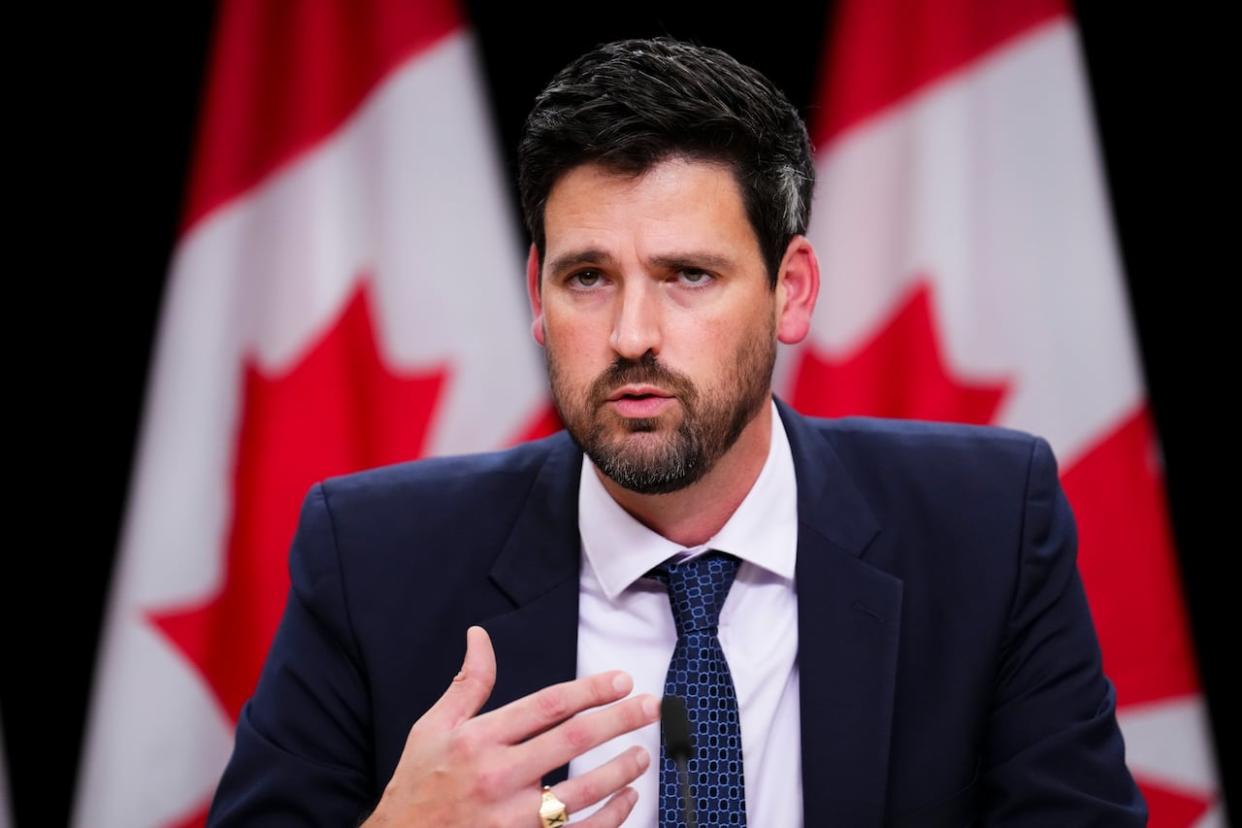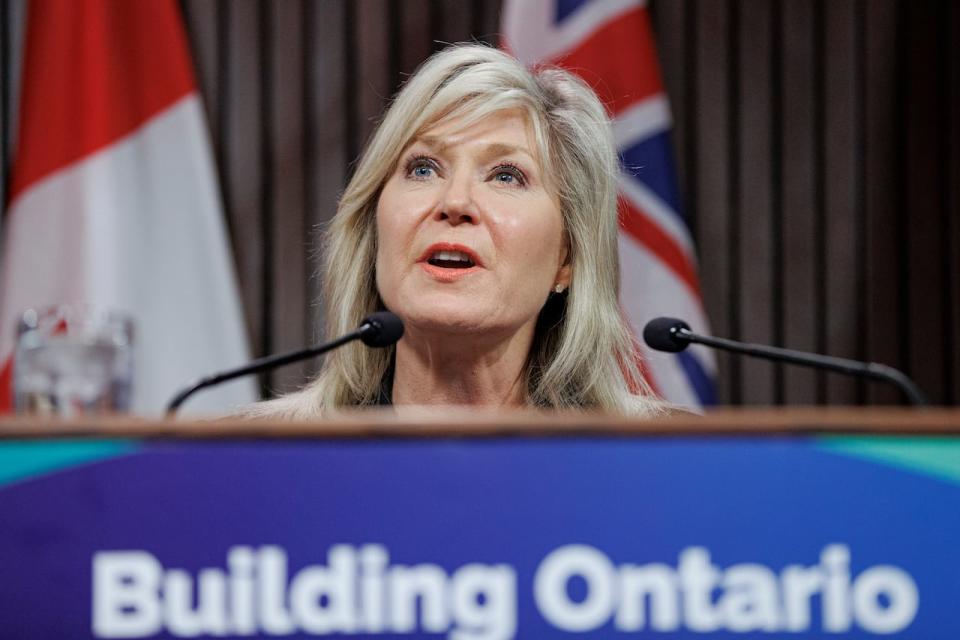Housing minister calls on municipalities to be more 'ambitious' with funding applications

Housing Minister Sean Fraser is challenging municipalities to provide their "best offer" when applying for federal housing funding, saying that he is prioritizing "the most ambitious" applicants.
"Not every city is guaranteed approval just because they've submitted an application. We're looking for the best of the best," he told a press conference Monday.
"If cities decide to do something less than their best offer, they will be competing for what's left in the fund after we've addressed the most ambitious applications."
On Monday, the government published a list of guidelines municipalities can follow to apply for the Housing Accelerator Fund. Those guidelines include suggestions to end density exclusionary zones, make municipal lands available for housing construction and eliminate building height restrictions.
The Housing Accelerator Fund, first announced during the 2021 election campaign and introduced in the 2022 federal budget, allocates $4 billion until 2026-27 to prompt more homebuilding in cities.
The Liberal government says the Housing Accelerator Fund's objective is to build 100,000 housing units beyond what would have been built without the fund by streamlining land-use planning and development approvals.
Municipal governments with populations of more than 10,000 can apply by pitching initiatives that would increase the annual rate of homebuilding in their cities by at least 10 per cent.

A condo building under construction in Vancouver, B.C., on March 30, 2018. The federal government is calling on municipalities to increase density in order to receiving funding for home construction. (Darryl Dyck/The Canadian Press)
Fraser said that more than 500 municipalities have submitted applications and warned that the fund doesn't have an unlimited amount of cash.
Ottawa has approved a number of municipal applicants through the accelerator program already, including Halifax, Hamilton and London, Ont.
But other municipalities, including provincial capitals like Toronto, St. John's and Charlottetown, are still negotiating their applications with the federal government.
Charlottetown Mayor Philip Brown said he shares the government's goal of increasing housing density but he is concerned about a one-size fits all approach. He said Charlottetown is looking at increasing density in certain areas but he wants to protect some of the city's historic neighbourhoods.
"The minister, he's got it right on, but I don't think his plan should be a fit for all of us," Brown told CBC News.
Fraser said Ottawa's suggestions for housing accelerator applications don't amount to a strict code for municipalities to follow. He suggested that cities can put forward their own proposals to achieve the goals the guidelines are meant to address.
"We don't want to be dogmatic. We want to be good partners," he said.
Fraser suggested that municipalities should look at what their counterparts are doing to get their funding applications approved.
"If you see your neighbour stepping up their ambition and getting a successful agreement with the federal government, know that that's who you're competing against," he said.

Last Friday, Mississauga Mayor Bonnie Crombie overturned a city council vote that rejected a proposal to allow the construction of more fourplexes in the city. (Evan Mitsui/CBC)
Just last week, Mississauga Mayor Bonnie Crombie reversed a council vote that initially rejected a proposal to allow more fourplexes to be built across the city. Crombie said accessing federal funding was a main driver behind that decision.
"Issuing this directive will ensure that Mississauga continues to be eligible for $120 million in important federal funding for housing and community infrastructure while allowing for much-needed housing to be built in our neighbourhoods for the next generation," Crombie said in a news release.
Mississauga city councillor Brad Butt, who voted against the proposal, said Crombie's decision was "disappointing." He said he's not opposed to having more fourplexes in the city but wants to take time to study the impact of changing zoning bylaws.
"We're now just going to have to deal with the reality that this is where we are moving and where we're moving forward and do our best job now to make sure that fourplexes integrate properly into neighborhoods," he said.
Butt said he believes Crombie's decision was due to the city's application for federal funding and said he's disappointed with the approach Ottawa is taking to housing.
"For the federal government to impose its housing standards on municipalities across this country and then just dangle a little bit of funding in front of us to get us to significantly overhaul our zoning bylaws in our cities, I think it's very disingenuous," he said.
More measures coming this fall
Fraser said the government will reveal more housing measures in the fall budget update and in the coming months.
"You should expect to see additional measures on housing in the fall economic statement. You should expect to see additional measures more broadly in the months ahead as they are ready. I'm not going to wait and hold them for some magic date, where we suddenly release all of the policies at once," Fraser said.
Some of the anticipated measures would tie federal infrastructure spending to housing outcomes in local communities. Fraser also said there will be more policies geared toward increasing the stock of social housing, and increasing workers' skills and innovation in the construction industry.
Finance Minister Chrystia Freeland has not announced a date for this year's fall economic statement but it is expected in the coming weeks.


